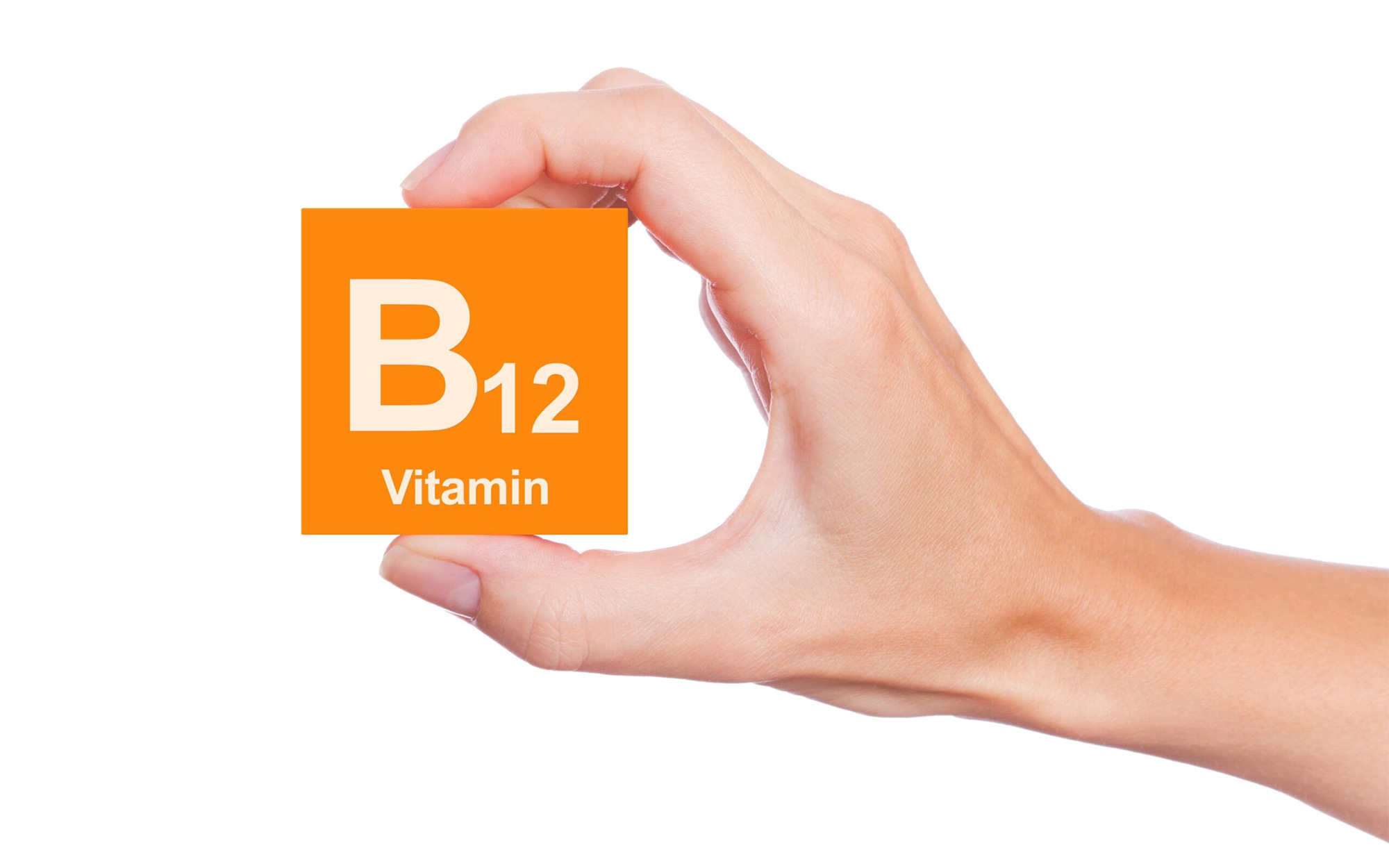Introduction
Welcome to The IVY Luxury IV Lounge’s blog, where we delve into the crucial topic of Vitamin B12 deficiency: its causes, symptoms, and how to diagnose it. At The IVY, we believe in empowering individuals to take control of their health and understanding the significance of Vitamin B12 is a fundamental part of that journey.
Vitamin B12 plays a vital role in our overall well-being, contributing to essential bodily functions such as energy production, red blood cell formation, and the health of our nervous system. However, despite its importance, many people unknowingly suffer from Vitamin B12 deficiency, which can have far-reaching consequences.
Throughout this blog, we will explore the primary causes of Vitamin B12 deficiency, ranging from dietary factors to absorption issues. We will uncover the telltale signs and symptoms that may indicate a deficiency, emphasizing the importance of early detection and intervention. Additionally, we will shed light on the diagnostic methods used by medical professionals to identify Vitamin B12 deficiency accurately.
By arming ourselves with knowledge about Vitamin B12 deficiency, we can make informed decisions about our health. We can take steps to prevent deficiencies through dietary adjustments and supplementation and seek appropriate treatment when necessary. At The IVY Luxury IV Lounge, we are committed to providing comprehensive solutions to support your journey toward optimal health and well-being.
So, let’s dive into Vitamin B12 deficiency, uncover its causes, recognize its symptoms, and learn how to diagnose it accurately. Together, we can take the necessary steps to ensure you live a vibrant, healthy life.
Understanding Vitamin B12
Vitamin B12 is a vital nutrient that plays a crucial role in maintaining overall health and well-being. It involves several essential bodily functions, making it an indispensable nutrient for optimal functioning.
Role of Vitamin B12
Vitamin B12, also known as cobalamin, is a water-soluble vitamin that is primarily responsible for:
Energy production: Vitamin B12 aids in metabolizing macronutrients like carbohydrates, proteins, and fats, converting them into usable energy.
Red blood cell formation: B12 is necessary to produce healthy red blood cells, which carry oxygen throughout the body.
Nervous system function: B12 helps maintain the health of nerve cells and supports the production of myelin, a protective sheath around nerve fibers.
Sources of Vitamin B12:
While Vitamin B12 is naturally found in animal-based foods such as meat, fish, eggs, and dairy products, it can be more challenging for individuals following a vegetarian or vegan diet to obtain adequate amounts. Fortified products, such as cereals, plant-based milk alternatives, and nutritional yeast, can serve as additional sources of Vitamin B12.
Absorption and Utilization:
To benefit from Vitamin B12, it must be effectively absorbed and utilized by the body. The process involves the stomach’s production of a protein called intrinsic factor, which binds to Vitamin B12 and enables its absorption in the small intestine. Certain factors, such as digestive disorders or the absence of intrinsic factors, can hinder the absorption of Vitamin B12, leading to deficiencies.
Causes of Vitamin B12 Deficiency
Vitamin B12 deficiency can arise from various factors, from dietary choices to underlying health conditions. Understanding these causes can help identify individuals at risk and prompt early intervention.
Inadequate Dietary Intake
One common cause of Vitamin B12 deficiency is a diet lacking sufficient B12 sources. Strict vegetarians and vegans who exclude animal-based products may struggle to obtain adequate Vitamin B12. To ensure proper intake, individuals following these diets must explore alternative sources, such as fortified foods or B12 supplements.
Malabsorption Issues
Even when consuming adequate B12, certain conditions can hinder the absorption of this crucial vitamin, leading to deficiency. One such condition is pernicious anemia, an autoimmune disease where the body cannot produce intrinsic factors, impairing B12 absorption. Gastrointestinal disorders like Crohn’s disease, celiac disease, or surgical removal of parts of the intestine can also disrupt absorption.
Medications and Medical Treatments
Certain medications and medical treatments can interfere with the body’s ability to absorb or utilize Vitamin B12. Examples include long-term use of certain antacids, proton pump inhibitors, and metformin, a medication commonly prescribed for diabetes. Individuals on these medications should discuss the potential effects on Vitamin B12 levels with their healthcare provider.
Age and Health Conditions
Advancing age is associated with a higher risk of Vitamin B12 deficiency. As we age, our bodies may have reduced stomach acid production or decreased intrinsic factor production, impairing B12 absorption. Additionally, individuals with certain health conditions, such as HIV/AIDS, gastrointestinal disorders, or those who have undergone gastrointestinal surgery, are more prone to B12 deficiency.
Rare Genetic Disorders
In rare cases, genetic disorders affecting B12 metabolism can lead to deficiency. Examples include transcobalamin deficiency and methylmalonic acidemia. These conditions require specialized medical care for proper diagnosis and management.
Symptoms of Vitamin B12 Deficiency
Vitamin B12 deficiency can manifest through various symptoms, varying in severity and impacting different bodily systems. Recognizing these symptoms is crucial for early detection and timely intervention.
Fatigue and Weakness:
One of the most common signs of Vitamin B12 deficiency is persistent fatigue and weakness. Individuals may experience a lack of energy, decreased stamina, and overall feelings of weakness, hindering their ability to carry out daily activities.
Neurological Symptoms:
Vitamin B12 deficiency can affect the nervous system, leading to various neurological symptoms, including:
Tingling or numbness: Individuals may experience a sensation of pins and needles, tingling, or numbness in their hands, feet, or other extremities.
Balance problems: Deficiency can impact coordination and balance, leading to an increased risk of falls or unsteadiness.
Memory and cognitive issues: B12 plays a role in cognitive function, and deficiency can result in memory loss, difficulty concentrating, and mental fogginess.
Mood changes: Some individuals may experience mood swings, irritability, or feelings of depression due to B12 deficiency.
Digestive Issues:
In some cases, Vitamin B12 deficiency can manifest through digestive symptoms, such as:
- Loss of appetite
- Nausea and vomiting
- Abdominal pain or discomfort
- Diarrhea or constipation
Pale or Jaundiced Skin:
Vitamin B12 deficiency can lead to a decrease in the production of red blood cells, causing anemia. One visible sign of anemia is pale or yellowish skin, weakness, and shortness of breath.
Glossitis and Mouth Ulcers:
Deficiency can result in inflammation of the tongue, known as glossitis. The tongue may appear swollen, red, and smooth. Additionally, some individuals may experience mouth ulcers or a sore and inflamed mouth.
It is important to note that these symptoms may not exclusively indicate Vitamin B12 deficiency, as they can also be associated with other health conditions. If you are experiencing any of these symptoms or suspect a deficiency, it is essential to consult a healthcare professional for proper diagnosis and treatment.
Diagnosing Vitamin B12 Deficiency
Proper diagnosis of Vitamin B12 deficiency involves a combination of clinical evaluation, medical history assessment, and laboratory testing. Healthcare professionals employ various diagnostic methods to identify the deficiency and determine its severity accurately.
Medical History and Clinical Evaluation:
During the initial assessment, a healthcare provider will inquire about the patient’s symptoms, medical history, dietary habits, and any underlying conditions that may contribute to B12 deficiency. This information helps establish a baseline understanding and guides further diagnostic steps.
Blood Tests:
Blood tests are commonly used to diagnose Vitamin B12 deficiency. The two preliminary blood tests employed are:
Serum B12 level: This test measures the concentration of Vitamin B12 in the blood. Levels below the normal range indicate deficiency.
Complete blood count (CBC): A CBC helps identify any abnormalities in the blood, such as anemia or abnormal red blood cell size and shape, which may suggest B12 deficiency.
Methylmalonic Acid (MMA) Test:
Elevated levels of methylmalonic acid in the blood can indicate a functional deficiency of Vitamin B12. This test is often performed alongside serum B12 testing to confirm the diagnosis and assess the severity of the deficiency.
Intrinsic Factor Antibody Test:
An intrinsic factor antibody test may be conducted for individuals suspected to have pernicious anemia, an autoimmune condition that affects intrinsic factor production. Positive results indicate the presence of antibodies that interfere with intrinsic factor activity, leading to B12 deficiency.
Conclusion
Vitamin B12 deficiency is a significant health concern that can have far-reaching consequences if left untreated. Individuals can take proactive steps toward addressing the deficiency by understanding the causes, recognizing the symptoms, and seeking a proper diagnosis. The IVY Luxury IV Lounge supports individuals on their journey to optimal health, providing comprehensive solutions, including Vitamin B12 testing and supplementation. Remember, your health is your most valuable asset, and prioritizing adequate Vitamin B12 levels is essential to maintaining a vibrant and thriving life.






